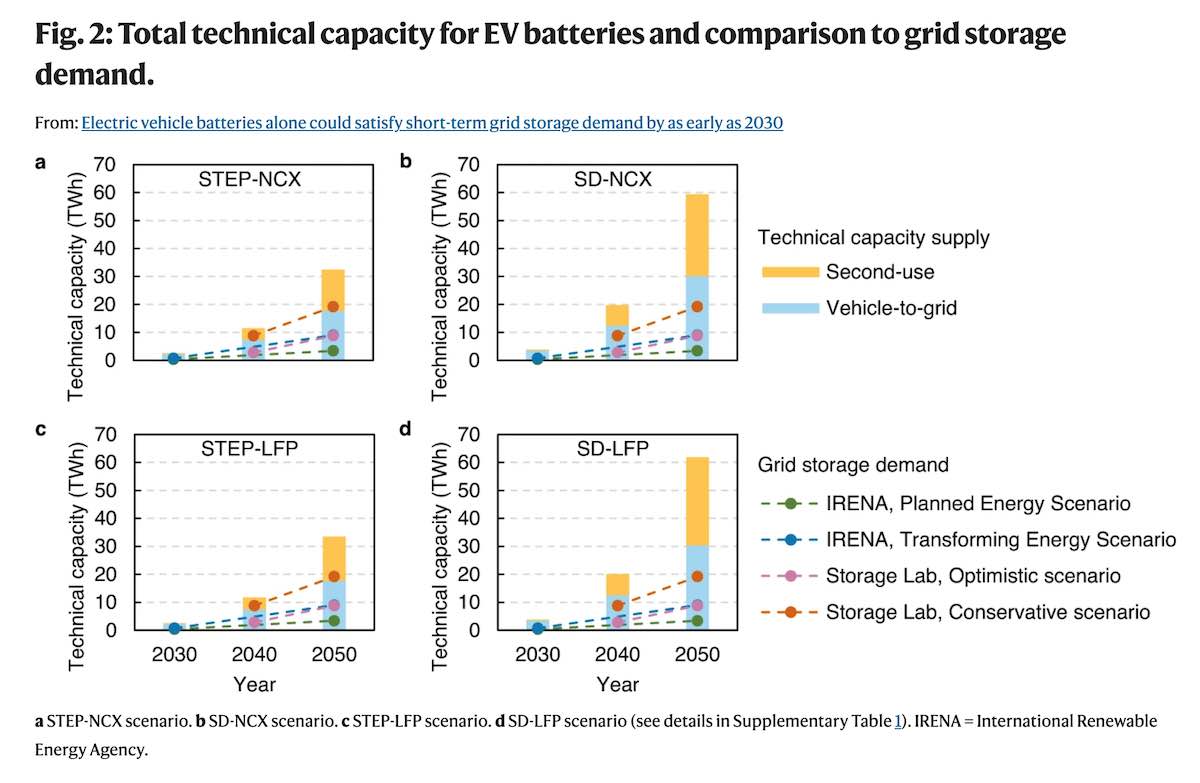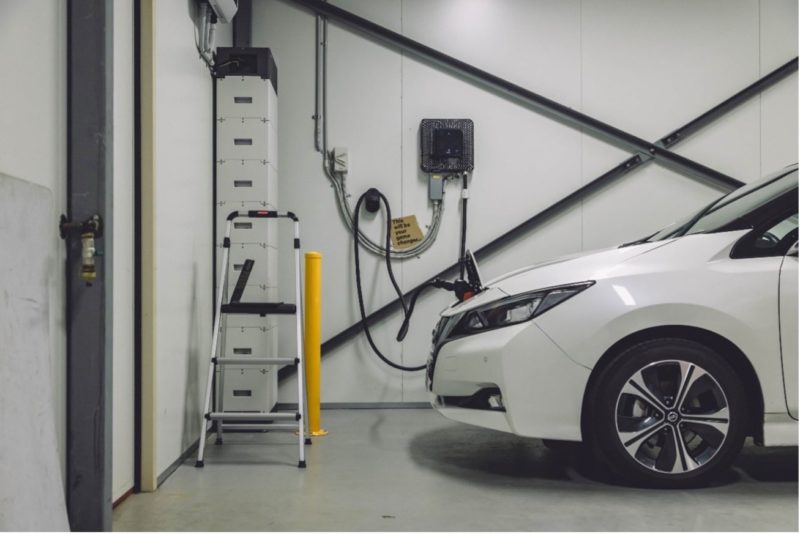A study has found that EVs equiped with vehicle-to-grid (V2G) technology could supply all of the world’s short-term grid energy storage requirements by 2030.
Published this week by Nature Communications, the study from academics from Leiden University in the Netherlands and the National Renewable Energy Lab in the US, found that a participation rate of just 12 – 43 per cent would be enough to provide the entire short-term capacity needed globally.
The report’s findings include both in-use and end-of-vehicle-life use phases and calculate that V2G could provide 32-62 terawatt-hours of short-term storage globally by 2050.
The authors stress that their estimates are generally conservative and offer a lower bound of future opportunities.
Vehicle-to-grid is low-hanging fruit in transition to clean energy
With grid-connected battery storage rollout largely constrained by battery production rates, the utilisation of EV batteries using V2G is low-hanging fruit and if done well could dramatically accelerate the shift away from fossil fuels.
Using V2G significantly reduces additional capital costs by displacing the need to finance dedicated stationary storage as well as reducing material-related emissions associated with building additional storage and power-electronic infrastructure.
Global EV fleet size projection and short-term storage requirements
The study looked at two EV fleet growth scenarios based on the IEA’s (International Energy Agency), stated policy (STEP) and sustainable development (SD) scenarios. STEP incorporates existing EV policies only while SD forecasts a faster fleet growth and is compatible with the climate goals of the Paris agreement.
The study’s global storage figures came from IRENA (International Renewable Energy Agency) Planned Energy and Transforming Energy Scenarios.
Total technical capacity is defined as total cumulative available EV battery capacity in use and in second use at a specific time while considering battery degradation and the capacity needed to meet driving demand. Globally, the SD scenario sees a total technical capacity twice that of the STEP scenario due to the larger fleet size.

The graphs show that growth in EV fleet battery capacity easily outstrips global short-term grid requirements and that just a fraction of the fleet participating in V2G is required.
Good policy decisions critical to unlocking V2G potential
The report’s authors stress that harnessing the potential for V2G will have critical implications for the energy transition and that policymakers should be across the detail and aware of the enormous opportunities.
The report says that EV user participation in the vehicle-to-grid market is crucial and that governments can and should play an important role in incentivising user uptake. Market-based solutions such as micro-payments for services to the grid as well as regulations requiring the connection of commercial fleets to the network while at depots are suggested.
Regulating required hardware and software solutions for EV integration is also recommended. This may include smart controllers for consumers in order to facilitate easy market participation and communication of benefits to EV users.
The study also says that policymakers and researchers should aim to understand EV user behaviour so that government policy can be optimised to maximise vehicle-to-grid user uptake.
Based on the huge opportunity to accelerate the transition away from fossil fuels, understanding the potential of vehicle-to-grid and creating good public policy should be of the highest priority for decision makers around the world.
The report was jointly authored by seven academics. Chengjian Xu, Paul Behrens, Mingming Hu, Arnold Tukker & Bernhard Steubing from the Institute of Environmental Sciences at Leiden University (Netherlands) and Paul Gasper and Kandler Smith from the National Renewable Energy Lab in Denver (USA).

Daniel Bleakley is a clean technology researcher and advocate with a background in engineering and business. He has a strong interest in electric vehicles, renewable energy, manufacturing and public policy.

